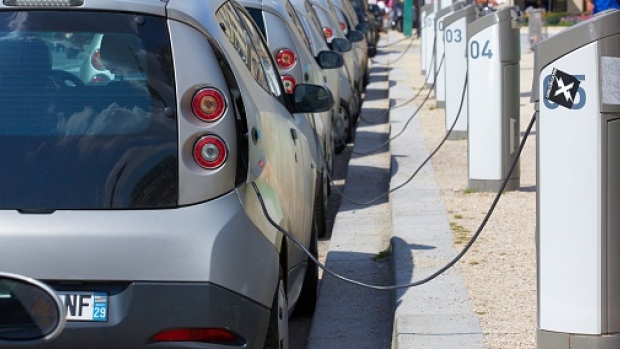Please welcome a second posting here at 21st Century Tech Blog, from Katie Brenneman. Katie’s previous contribution looked at how individuals can practice sustainability to mitigate the threat of climate change. Her many interests include writing on lifestyle, mental health, and sustainability. You can follow her on Twitter.
In this contribution, Katie has chosen a timely topic: the increasing consumer interest in electric vehicles (EVs). The recent stratospheric rise in gasoline and diesel prices because of Russia’s invasion of Ukraine has made EVs far more attractive. That plus more announcements about new EV models, i.e., The Ford Lightning (an EV version of the F-150) may prove to be the moment when North Americans begin a rapid move away from fossil-fuel-powered vehicles?
As fuel prices continue to rise around the world, many consumers are taking another look at EVs as a potential solution for their transportation needs. This follows historical trends that show whenever there is a spike in gas and diesel costs it is accompanied by an increase in EV sales. Online searches for EVs continue to double with many in the renewable energy sector wondering if this is the watershed moment that will finally move us to take zero-emission actions seriously.
Auto manufacturers and consumers are already transitioning to EVs based on the increasing number of industry announcements and the growth in sales. But is this a sustainable trend? If gas prices start to settle, will EV interest decline?
In this article, we explore how consumers, auto manufacturers, and public policy, may be converging to put us on the road to a zero-emissions future faster.
Consumer Demand Can Speed Up Development
EVs may seem like an easy fix for rising gas prices, but a rapid rise in adoption depends on more than sudden consumer demand. It also requires the industry to commit to more EV choices and higher production. This is easier said than done because many vehicle manufacturers are facing supply chain issues. There are EV battery shortages. For example, some Tesla models have wait times ranging up to 10 months before delivery. The United State’s dependence on foreign suppliers of lithium batteries further exacerbates EV development and contributes to slower adoption despite rising interest.
There is, however, a good sign from manufacturers in the pledges that almost all are making to become carbon neutral within the next 30 years in every aspect of their business operations including supply chains. And as public interest in purchasing EVs continues to go up, the industry is also more inclined to find ways to speed up its development of new EV models and options.
For example, manufacturers like GM and Ford are opening dedicated EV battery manufacturing plants. And Tesla, which sold one million EVs in 2021, continues to add gigafactories to its facilities around the world focused on battery supply and production. In just the last few weeks, Elon Musk, Tesla’s founder, told lithium raw material suppliers that his company is prepared to begin competing with them in the mining of lithium to ensure supply and prices remain stable in the battery marketplace.
So the short-term supply chain issues should go away as early as the end of this year and beyond, leading to greater capacity and volumes of new products entering the market. Add to this government policy (both Canada and the United States here in North America) promoting EV vehicle purchases through rebate incentives and you have market-ready conditions for a surge.
Are EVs Convenient For Everyone?
Consumer interest in EVs is rising but there remain inhibiting factors that continue to slow widespread adoption. For example, not all models are suited for long-distance travel, especially since fast charging isn’t possible with all EVs. Plus, charging locations are unevenly distributed across North America with California having far more EV stations per capita than anywhere else on the continent.
Without a major investment in EV charging infrastructure, EV adoption will remain constrained by the technology’s limits. How do you compete with a gas station infrastructure that is ubiquitous? That’s what EVs need to displace fossil-fuel-powered cars and trucks.
Even if consumers drive their EVs locally, they need to have home charging stations for overnight recharging. It is not difficult to add a charging port to a garage or private driveway, but it is another matter for legacy multi-unit residential structures. And although cities are requiring new builds to include EV charging infrastructure, unless the urban landscape becomes dotted with roadside charging stations as seen in the picture above, for those living in older buildings keeping an EV charged could become an adventure.
Are EVs Affordable?
While charging n EV is more affordable than fueling up a standard car, it’s difficult to say if consumers will view the savings as significant enough to make a difference. For example, putting in a home charging station comes with a cost, as does charging from home which increases electricity usage. And when you consider that overall, rates for electricity almost everywhere are rising, operational affordability comes into question.
Consumers can take steps to offset their electricity bill increases by switching away from incandescent lighting to LEDs in their homes, or they can upgrade insulation to reduce heating and cooling costs, but this just becomes another impediment to making the EV switch even in the face of rising gasoline and diesel prices.
Climate change concerns have been a proven driver of EV demand. The latest IPCC reports, noting that we are approaching an existential red line, may persuade many to make the switch. But even eco-conscious consumers may be reluctant to buy for other environmental reasons. For example, the use of lithium and other materials in EVs is seen as potentially toxic to the environment, particularly when considering battery end-of-life and the lack of adequate recycling and reuse of materials programs. And then there is the issue of where the electricity comes from when recharging an EV. If it is energy from a coal-fired or natural gas thermal power plant, then how is using an EV reducing greenhouse gas pollution? For some eco-conscious consumers, the need for greater investment in sustainable zero-emission energy remains a legitimate inhibitor.
Will Rising Gas Prices Be The Final Driver To A Zero-Emission Future?
Rising gas prices are making consumers consider EV purchases. But it is too soon to say that these increases at the pump will directly lead to a zero-emission future. EV adoption is only one part of a number of changes needed to make the zero-emission future happen.
Consumer perception about the value of EVs is indeed changing. And by 2025 we should see a proliferation of new EV models coming from almost every automobile manufacturer on the planet. But until we address all the remaining infrastructure issues that need to be addressed to make EVs viable as a replacement for fossil-fuel-powered alternatives, don’t expect sales to double or more in the near future. Rather, the adoption of EVs will continue to grow as model choices increase and as the missing infrastructure pieces are made widely available.
Editor’s Note: Here in Toronto where there is still a lack of EV charging stations, as I drive my Venza Hybrid on errands, it is becoming more obvious that EVs are more present than ever before. Even in condominiums with no charging station infrastructure, you see Tesla EVs increasingly appearing in underground residence parking areas. So somehow EV owners are finding a way to charge their vehicles. I drive a hybrid because I couldn’t find any local charging stations near our apartment and our building isn’t ready to put some in. But I suspect to see a widespread curbside network in this city within this decade as Toronto implements its zero-emission plan. Then, should I choose to get a new vehicle, I’ll be driving an EV.









